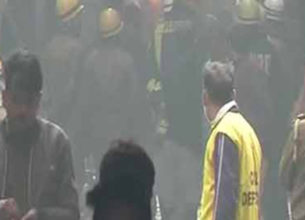STRINGENT LAW AGAINST SEXUAL HARASSMENT AT WORK
21, Jan 2020

Prelims level : Rights Issues
Mains level : GS-II Welfare schemes for vulnerable sections of the population by the Centre and States and the performance of these schemes; mechanisms, laws, institutions and Bodies constituted for the Protection and Betterment of these Vulnerable Sections
Why in News?
- The Group of Ministers (GoM) headed by Home Minister Amit Shah, was recently constituted to strengthen the legal framework to prevent sexual harassment at the workplace.
What is Sexual Harassment?
- Sexual Harassment of Women at Workplace (Prevention, Prohibition And Redressal) Act, 2013 defines sexual harassment: It includes “any one or more” of the following “unwelcome acts or behaviour” committed directly or by implication: Physical contact and advances, Sexually coloured remarks, Showing pornography, A demand or request for sexual favours, Any other unwelcome physical, verbal or non-verbal conduct of sexual nature.
About the Issue:
- The GoM was constituted first in October 2018 in the aftermath of the #MeToo movement after many women shared their ordeal on social media.
- The Women and Child Development Ministry had steered the Sexual Harassment of Women and Workplace (Prevention, Prohibition and Redressal) Act in 2013, which was applicable to government offices, the private sector, NGOs and also the unorganised sector.
On what basis the Amendments were based?
- The proposed amendments would be largely based on the Vishaka Guidelines laid down by the Supreme Court in 1997, on which the 2013 Act was based.
- It made the employer responsible to prevent or deter acts of sexual harassment at the workplace.
Do strict Provisions Needed?
- The 2013 Act has entrusted the powers of a civil court to the Internal Complaints Committee (ICC) without specifying if the members need to have a legal background.
- This was a major drawback given that the ICC formed an important grievance redressal mechanism under the framework of the act.
- The 2013 act only imposed a fine of ₹50,000 on employers for non-compliance with respect to the constitution of the ICC.
- This proved to be insufficient in ensuring that the employers constituted the ICC in a time-Bound Manner.












